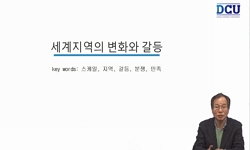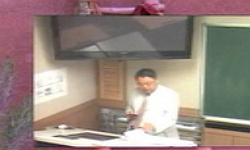A trade union that is undergoing a strike may end the strike or declare the intent to return to work after the employer closes the workplace(Lock out). If the union's declaration of intent is genuine, the employer’s Lock out will lose legitimacy. Th...
http://chineseinput.net/에서 pinyin(병음)방식으로 중국어를 변환할 수 있습니다.
변환된 중국어를 복사하여 사용하시면 됩니다.
- 中文 을 입력하시려면 zhongwen을 입력하시고 space를누르시면됩니다.
- 北京 을 입력하시려면 beijing을 입력하시고 space를 누르시면 됩니다.

노동조합의 업무복귀 의사표시와 직장폐쇄 지속의 정당성 = Is the Lock out fair after the trade union expresses its intention to return to work?
한글로보기https://www.riss.kr/link?id=A106434470
-
저자
이준희 (한국경영자총협회)
- 발행기관
- 학술지명
- 권호사항
-
발행연도
2019
-
작성언어
Korean
-
주제어
Lock out ; strike ; dispute ; employer ; trade union ; intention to return to work ; defensive requirement ; 직장폐쇄 ; 업무복귀 의사표시 ; 대항성 ; 방어성 ; 쟁의행위
-
등재정보
KCI등재
-
자료형태
학술저널
-
수록면
293-320(28쪽)
-
KCI 피인용횟수
0
- DOI식별코드
- 제공처
-
0
상세조회 -
0
다운로드
부가정보
다국어 초록 (Multilingual Abstract)
In the case of Sangsin Brake Co., the Supreme Court of Korea ruled that the declaration of intent to return to work of trade union members should be expressed collectively and objectively. In addition, the Court judged that the trade union’s declaration of intent should be expressed through a highly reliable official document, and if it is made through procedures such as submitting a notification of withdrawal of disputes and confirmation by the administrative agency, the employer should trust it. However, it is difficult to accept that the case presents a general standard that can confirm the authenticity of the trade union's declaration of intent to return to work.
When a trade union expresses its intention to return to work, it must be trusted the truth unless there is a special circumstance where it can know in advance that the intention is not true. If the employer trusts the intention, but the intention is false, the trade union must be responsible for it. It is not always a appropriate explanation to see that a third party has to confirm or guarantee to verify the authenticity of the intention. Some scholars argue that trade unions must actually stop the dispute and return to work. If the union members actually return to work but the employer keeps the Lock out, it is possible to examine whether the defense requirement from that time has been dropped. Even if the trade union stops the dispute and tries to return to work, it may not be possible to do so. The Supreme Court of Korea has the same view in principle. The Court ruled that a trade union's intention to return to work should be trusted if it is not accompanied by the actions of the opposite trade union and there are no special circumstances that only doubt the truth of the intention. The effective point is from when the intention is delivered to the employer. And the requirement for defensive protection of Lock out will be dropped from that time. The position of the Supreme Court of Korea can be confirmed in the similar cases Valeo Electrical Systems Korea Ltd. and Yoosung Enterprise Co.
A trade union that is undergoing a strike may end the strike or declare the intent to return to work after the employer closes the workplace(Lock out). If the union's declaration of intent is genuine, the employer’s Lock out will lose legitimacy. The reason for the legitimacy of Lock out is that, in particular, the defensive requirement is lost. However, in situations where the conflict between the trade union and the employer is very intense, it is not correct to force the employer to trust the trade union's declaration of intent to return to work. An important case to refer to in this regard is the Sangsin Brake Co. case.
In the case of Sangsin Brake Co., the Supreme Court of Korea ruled that the declaration of intent to return to work of trade union members should be expressed collectively and objectively. In addition, the Court judged that the trade union’s declaration of intent should be expressed through a highly reliable official document, and if it is made through procedures such as submitting a notification of withdrawal of disputes and confirmation by the administrative agency, the employer should trust it. However, it is difficult to accept that the case presents a general standard that can confirm the authenticity of the trade union's declaration of intent to return to work.
When a trade union expresses its intention to return to work, it must be trusted the truth unless there is a special circumstance where it can know in advance that the intention is not true. If the employer trusts the intention, but the intention is false, the trade union must be responsible for it. It is not always a appropriate explanation to see that a third party has to confirm or guarantee to verify the authenticity of the intention. Some scholars argue that trade unions must actually stop the dispute and return to work. If the union members actually return to work but the employer keeps the Lock out, it is possible to examine whether the defense requirement from that time has been dropped. Even if the trade union stops the dispute and tries to return to work, it may not be possible to do so. The Supreme Court of Korea has the same view in principle. The Court ruled that a trade union's intention to return to work should be trusted if it is not accompanied by the actions of the opposite trade union and there are no special circumstances that only doubt the truth of the intention. The effective point is from when the intention is delivered to the employer. And the requirement for defensive protection of Lock out will be dropped from that time. The position of the Supreme Court of Korea can be confirmed in the similar cases Valeo Electrical Systems Korea Ltd. and Yoosung Enterprise Co.
국문 초록 (Abstract)
이에 대해 상신브레이크 사건에서 대법원은 업무복귀 의사표시의 진정성은 조합원의 업무복귀 의사표시가 집단성과 객관성이 인정되는 노동조합 차원의 의사표시일 것, 신뢰성 있는 공적 문서와 행정관청에 대한 쟁의행위 철회신고서 제출 등 사용자가 신뢰할 수 있는 조치를 취할 것 등의 조건을 충족하는지를 하는 점을 통해 확인할 수 있다고 판시하였다.
그러나 노동조합이 업무복귀 의사를 표시했다면 그 의사표시가 진의가 아님을 사전에 알 수 있었던 특별한 사정이 없는 한 진의인 것으로 신뢰해야 한다. 사용자가 그 의사표시를 신뢰했지만 그 의사표시가 거짓이었다면, 그 대한 책임은 표의자인 노동조합이 부담해야 한다. 의사표시의 진정성을 확인하기 위하여 제3자의 확인이나 보증이 필요하다고 보는 것은 언제나 타당한 설명은 아니다. 노동조합은 실제로 쟁의행위를 중단하고 업무에 복귀하여야 한다고 보는 견해가 있다. 실제로 노동조합 조합원들이 업무에 복귀하였는데도 사용자가 직장폐쇄를 유지하고 있다면 비로소 방어성 요건 탈락 여부를 심사할 수 있다고 보는 견해이다. 노동조합이 쟁의행위를 중단하고 업무에 복귀하고자 해도 그렇게 할 수 없는 상황이 발생하는 경우가 있다는 점을 고려하면 타당한 주장이라고 보기 어렵다. 대법원 판례도 원칙적으로는 노동조합의 업무복귀 의사표시는 그와 반대되는 노동조합의 행위가 수반되고 있거나, 그 의사표시의 진의를 의심할 수밖에 없는 특별한 사정이 없는한 의사표시가 사용자에게 전달된 시점에 효력을 발생하고 직장폐쇄의 방어성 요건을 탈락시킨다고 판단하고 있다고 보아야 한다. 이는 유사한 사례인 발레오전장 사건과 유성기업 사건에서 확인할 수 있다.
쟁의행위를 진행 중인 노동조합이 사용자가 직장폐쇄를 단행한 이후 쟁의행위를 종료하거나 업무복귀 의사표시를 한 경우에, 그 의사표시가 진의라면 사용자가 직장폐쇄를 계속할 수 있는 ...
쟁의행위를 진행 중인 노동조합이 사용자가 직장폐쇄를 단행한 이후 쟁의행위를 종료하거나 업무복귀 의사표시를 한 경우에, 그 의사표시가 진의라면 사용자가 직장폐쇄를 계속할 수 있는 정당성 요건, 특히 방어성 요건이 상실된다고 보아야 한다. 그러나 현실적으로는 노사관계가 심각하게 악화된 상황에서는 쟁의행위를 진행하고 있는 노동조합의 업무복귀 의사표시를 사용자가 신뢰할 수 없게 되는 문제가 발생한다.
이에 대해 상신브레이크 사건에서 대법원은 업무복귀 의사표시의 진정성은 조합원의 업무복귀 의사표시가 집단성과 객관성이 인정되는 노동조합 차원의 의사표시일 것, 신뢰성 있는 공적 문서와 행정관청에 대한 쟁의행위 철회신고서 제출 등 사용자가 신뢰할 수 있는 조치를 취할 것 등의 조건을 충족하는지를 하는 점을 통해 확인할 수 있다고 판시하였다.
그러나 노동조합이 업무복귀 의사를 표시했다면 그 의사표시가 진의가 아님을 사전에 알 수 있었던 특별한 사정이 없는 한 진의인 것으로 신뢰해야 한다. 사용자가 그 의사표시를 신뢰했지만 그 의사표시가 거짓이었다면, 그 대한 책임은 표의자인 노동조합이 부담해야 한다. 의사표시의 진정성을 확인하기 위하여 제3자의 확인이나 보증이 필요하다고 보는 것은 언제나 타당한 설명은 아니다. 노동조합은 실제로 쟁의행위를 중단하고 업무에 복귀하여야 한다고 보는 견해가 있다. 실제로 노동조합 조합원들이 업무에 복귀하였는데도 사용자가 직장폐쇄를 유지하고 있다면 비로소 방어성 요건 탈락 여부를 심사할 수 있다고 보는 견해이다. 노동조합이 쟁의행위를 중단하고 업무에 복귀하고자 해도 그렇게 할 수 없는 상황이 발생하는 경우가 있다는 점을 고려하면 타당한 주장이라고 보기 어렵다. 대법원 판례도 원칙적으로는 노동조합의 업무복귀 의사표시는 그와 반대되는 노동조합의 행위가 수반되고 있거나, 그 의사표시의 진의를 의심할 수밖에 없는 특별한 사정이 없는한 의사표시가 사용자에게 전달된 시점에 효력을 발생하고 직장폐쇄의 방어성 요건을 탈락시킨다고 판단하고 있다고 보아야 한다. 이는 유사한 사례인 발레오전장 사건과 유성기업 사건에서 확인할 수 있다.
참고문헌 (Reference)
1 西谷 敏, "勞働組合法" 有斐閣 2012
2 菅野和夫, "勞働法" 弘文堂 2016
3 "판례검색"
4 하갑래, "집단적 노동관계법" 2016
5 김운희, "직장폐쇄의 법적 근거에 관한 연구" 노동법이론실무학회 (19) : 73-105, 2016
6 조임영, "직장폐쇄의 법적 개념 및 성질" 서울대학교노동법연구회 (17) : 207-241, 2004
7 이광선, "직장폐쇄 관련 논의(1) : 대법원 2017.4.17. 선고 2013다101425 판결중심으로" (313) : 2017
8 박종희, "산별노조 체제에서 쟁의행위 법리에 관한 연구" (45) : 2005
9 이종복, "사법관계와 자율" 1993
10 송강직, "미국의 직장폐쇄" 한국비교노동법학회 25 : 209-246, 2012
1 西谷 敏, "勞働組合法" 有斐閣 2012
2 菅野和夫, "勞働法" 弘文堂 2016
3 "판례검색"
4 하갑래, "집단적 노동관계법" 2016
5 김운희, "직장폐쇄의 법적 근거에 관한 연구" 노동법이론실무학회 (19) : 73-105, 2016
6 조임영, "직장폐쇄의 법적 개념 및 성질" 서울대학교노동법연구회 (17) : 207-241, 2004
7 이광선, "직장폐쇄 관련 논의(1) : 대법원 2017.4.17. 선고 2013다101425 판결중심으로" (313) : 2017
8 박종희, "산별노조 체제에서 쟁의행위 법리에 관한 연구" (45) : 2005
9 이종복, "사법관계와 자율" 1993
10 송강직, "미국의 직장폐쇄" 한국비교노동법학회 25 : 209-246, 2012
11 박제성, "노동법의 쟁점과 과제(김유성교수화갑기념)" 2000
12 김치선, "노동법강의" 1990
13 김유성, "노동법Ⅱ" 1997
14 임종률, "노동법" 2017
15 김형배, "노동법" 2018
16 신인령, "노동기본권연구" 1985
17 고용노동부, "근로시간면제 한도 적용 매뉴얼"
18 박수근, "공격적 직장폐쇄와 임금의 지급의무" (59) : 2016
19 Brox, "Arbeitsrecht" Kohlhammer 2004
동일학술지(권/호) 다른 논문
-
예고해고의 적용 예외에 대한 법적 검토 - 헌법재판소 2015. 12. 23. 선고 2014헌바3 결정을 중심으로 -
- 노동법이론실무학회
- 김태현
- 2016
- KCI등재
-
근로자 개인정보 처리의 정당성 요건과 한계–종속성의 관점에서
- 노동법이론실무학회
- 양승엽
- 2016
- KCI등재
-
파견법상 고용간주규정과 고용의무조항의 법적효과에 대한 재검토 - 대법원 2015.11.26. 선고 2013다14965 판결과 관련하여 -
- 노동법이론실무학회
- 김희성
- 2016
- KCI등재
-
- 노동법이론실무학회
- 최석환
- 2016
- KCI등재
분석정보
인용정보 인용지수 설명보기
학술지 이력
| 연월일 | 이력구분 | 이력상세 | 등재구분 |
|---|---|---|---|
| 2026 | 평가예정 | 재인증평가 신청대상 (재인증) | |
| 2020-01-01 | 평가 | 등재학술지 유지 (재인증) |  |
| 2017-01-01 | 평가 | 등재학술지 유지 (계속평가) |  |
| 2014-01-01 | 평가 | 등재학술지 선정 (계속평가) |  |
| 2013-01-01 | 평가 | 등재후보 1차 PASS (등재후보1차) |  |
| 2011-01-01 | 평가 | 등재후보학술지 선정 (신규평가) |  |
학술지 인용정보
| 기준연도 | WOS-KCI 통합IF(2년) | KCIF(2년) | KCIF(3년) |
|---|---|---|---|
| 2016 | 0.64 | 0.64 | 0.58 |
| KCIF(4년) | KCIF(5년) | 중심성지수(3년) | 즉시성지수 |
| 0.61 | 0.56 | 0.832 | 0.35 |




 KCI
KCI



